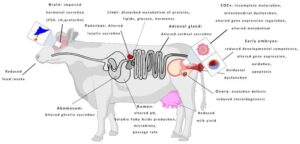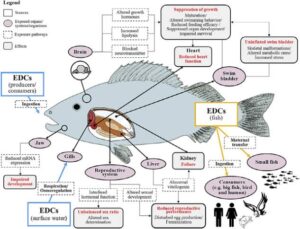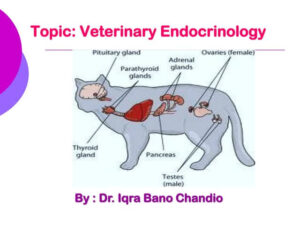Back to: ZOOLOGY 400 Level
Welcome to class!
Hello there, my brilliant star! I’m excited to have you here again. Today, we’re going to talk about a mix of fascinating and very important areas in physiology—topics like endocrine disorders, respiratory adaptations, and more. These topics help us understand how the body works, what happens when something goes wrong, and how animals survive in their unique environments. Let’s break them down in a simple and relatable way, just like chatting with a friend.
Topics May Include Endocrine Disorders, Respiratory Adaptations, Etc.
Endocrine Disorders
The endocrine system is like a message-sending network in your body. It uses hormones to control things like growth, mood, metabolism, and even how much you sleep. But what happens when this system has a problem?
Diabetes Mellitus
This is one of the most common endocrine disorders. It happens when the body cannot produce enough insulin or cannot use it properly. Insulin helps to control the amount of sugar in the blood.

Example: A person with diabetes may feel thirsty often, lose weight quickly, or feel tired all the time. In Nigeria, diabetes is becoming more common due to lifestyle changes and poor diet.
Hyperthyroidism and Hypothyroidism
These are disorders of the thyroid gland. If it produces too much hormone (hyperthyroidism), the person may lose weight, feel anxious or have fast heartbeat.
If it produces too little (hypothyroidism), the person may gain weight, feel tired, or become forgetful.
Example: In areas with low iodine in food (common in some rural parts of Africa), people may suffer from goitre—an enlarged thyroid gland.
Growth Disorders
Problems with the pituitary gland can lead to too much or too little growth hormone.
Example: A child might grow unusually tall (gigantism) or remain very short (dwarfism).
Respiratory Adaptations
Animals, especially those in challenging environments, develop special features to help them breathe properly.
High Altitude Adaptations
Animals that live in high mountains where the air is thin have bigger lungs or more red blood cells.
Example: The Ethiopian wolf has adapted to live in highland areas with low oxygen levels.
Aquatic Adaptations
Fish have gills that help them take oxygen directly from water. Some amphibians can also breathe through their skin.
Example: The African lungfish can survive in muddy waters by breathing air directly with a lung-like structure.
Desert Adaptations
In dry environments, some animals reduce their breathing rate to avoid water loss.

Example: Reptiles in the Sahara breathe slowly and use their noses to minimise moisture loss.
Other Important Physiological Topics
Metabolic Rate: Some animals can slow down their metabolism during times of food shortage. This helps them survive harsh seasons.
Example: Some desert rodents in Nigeria lower their metabolism during dry seasons.
Thermoregulation: This is how animals keep their body temperature stable.

Example: Elephants use their large ears to release heat in the hot savannah sun.
Summary
- Endocrine disorders include conditions like diabetes, thyroid problems, and growth hormone imbalances.
- Diabetes is caused by poor insulin control, while thyroid disorders affect metabolism.
- Respiratory adaptations help animals survive in mountains, water, or deserts.
- High-altitude animals develop bigger lungs and more red blood cells.
- Other important processes include metabolic rate control and thermoregulation for survival in extreme conditions.
Evaluation
- What is diabetes mellitus, and what hormone is involved?
- Give one difference between hyperthyroidism and hypothyroidism.
- How do animals survive at high altitudes with low oxygen?
- Describe one respiratory adaptation in aquatic animals.
- What is thermoregulation, and how do elephants manage heat?
You are doing fantastically well! These topics may seem deep, but your focus and hard work are lighting up your learning journey. Remember, every bit of knowledge is preparing you for greatness. Keep shining and learning with Afrilearn—we’re proud of you and can’t wait to see you in the next lesson!
